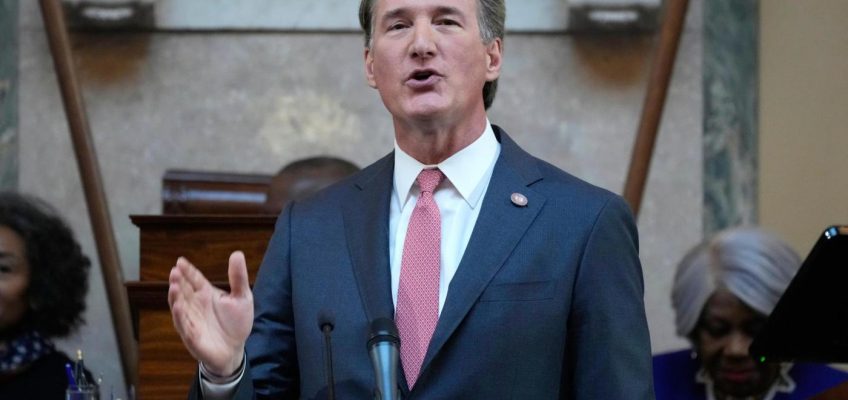By Robbie Sequeira, Stateline.org
Across the country, state lawmakers are finding rare bipartisan ground on an increasingly urgent issue for educators and parents: banning cellphone use in schools.
Related Articles
Senate will vote on confirming Linda McMahon to lead an education agency Trump has vowed to close
Twin Cities universities face uncertain environment with federal cuts to scholarships, research
Smartphones in schools: Do they help students learn?
As Trump’s deadline to eliminate DEI nears, few schools openly rush to make changes
St. Paul school field trip canceled for students of color following racial discrimination complaint
Fueling these bans is growing research on the harmful effects of smartphone and social media use on the mental health and academic achievement of grade to high school students.
In 2024, at least eight states — California, Idaho, Indiana, Louisiana, Minnesota, Ohio, South Carolina and Virginia — either expanded or adopted policies or laws to curtail cellphone use in schools.
This year, lawmakers in Alabama, Georgia, Maryland, Minnesota, Nebraska, New Hampshire, Oklahoma, Texas and Wisconsin have proposed bans moving in their state legislatures.
Arkansas Republican Gov. Sarah Huckabee Sanders recently signed a law requiring schools to ban students’ access to cellphones and other personal electronic devices during the school day.
Iowa Republican Gov. Kim Reynolds introduced a broader electronics device ban this year.
Last month, New York Democratic Gov. Kathy Hochul unveiled her plans to ban smartphones at schools.
And Illinois Democratic Gov. JB Pritzker has proposed a statewide ban on cellphones in classrooms.
Some experts warn, however, that these bans might be difficult to enforce — or may simply be outdated before they even take effect.
“The genie is out of the bottle, and squeezing it back in is going to be nearly impossible,” said Ken Trump, a longtime school safety expert and president of National School Safety and Security Services, a consulting firm. “Phones and social media have fundamentally changed society, and by extension, schooling. Outright bans may be unrealistic or difficult to enforce effectively.”
Trump thinks governors, in particular, are responding to a trend rather than conducting thorough research. “Our elected officials are running to say, ‘he [introduced a bill] so I’m going to do it too.’ … Once Florida passed their bill, it’s been an explosion.”
Florida in 2023 became the first state to enact an outright ban on cellphone use during instructional time, followed by Louisiana and South Carolina last year. Other states, including Alaska and Connecticut, issued recommendations rather than mandates, encouraging local districts to develop their own policies.
In Minnesota, districts are required to implement their own policies under the law passed last year. But a bill sponsored by Democratic state Sen. Alice Mann would ban cellphones and smartwatches in elementary and middle schools, and restrict the use of those devices in high school classrooms beginning in the 2026-2027 school year.
Mann began considering the measure after hearing directly from students last year.
“We had a committee hearing where kids told us how distracting cellphones were. That really caught our attention,” she said. “We talked to school districts across the state — some had no policy, some had bans for one or two years, and some had bans for longer. The ones with bans all said the same thing: ‘It’s been wonderful.’”
Enforcement
Even where bans exist, enforcement varies widely. Some schools use Yondr pouches, lockable sleeves that prevent phone access during the school day. Others require students to store their phones in lockers or classroom pouches, while some schools rely on simple classroom rules prohibiting phone use.
According to the Pew Research Center, 72% of U.S. high school teachers say that cellphone distraction is a major issue in their classrooms. While many teachers and administrators report positive changes after bans, students have quickly adapted, finding ways to bypass rules by slipping calculators or dummy phones into pouches, or switching to smartwatches to check social media and send texts.
“Students are more tech-savvy than lawmakers,” said Trump, the school safety expert. “They find workarounds — whether it’s through smartwatches, Chromebooks or school Wi-Fi.”
States such as Arkansas, Delaware, Idaho and Pennsylvania allocated funding for programs that provide schools with lockable phone storage pouches, or financial rewards for districts that create their own restrictive policies.
A proposed bill in Texas would go so far as to charge students up to $30 to retrieve a phone that was confiscated for violating a cellphone ban.
Schools have wrestled with how to regulate mobile devices for decades — with bans on devices such as pagers dating back to the late 1980s. In 2024, 76% of U.S. public schools prohibited cellphones for nonacademic use, notes the National Center for Education Statistics.
Total bans?
The Girls Athletic Leadership School Los Angeles has enforced strict no-phone policies since its founding in 2016. The charter school’s no-phone policy means no usage on campus, during off-campus experiences, or even on school buses — a step beyond most phone bans.
“Cellphones present a major distraction and temptation for students,” Vanessa Garza, Girls Athletic Leadership School Los Angeles executive director and founding principal, wrote in a statement to Stateline. “This long-standing policy has allowed our students to foster deep friendships, experience enhanced learning, and regulate healthy emotions.”
Instead of top-down state mandates, Trump, the school security expert, thinks that schools should focus on reasonable restrictions and consensus-based policies that work for individual communities.
“If you try to ban phones entirely, enforcement becomes a nightmare,” he said. “What happens when kids don’t comply? Are schools going to dedicate staff just to cellphone discipline? If policies aren’t enforced consistently, they become meaningless.”
Trump said in school emergencies, students flooding 911 with calls can overwhelm emergency responders.
Mann, the Minnesota lawmaker, dismissed the idea that the pushback on phone bans is coming from students. Instead, she thinks parents are the ones most resistant to restrictions.
“Some parents are worried they won’t be able to reach their kids, but they absolutely can. If a parent needs to get in touch with their child, they can call the school, just like they always could before cellphones were in every pocket,” said Mann.
“What we’re hearing from students is that their phones are pinging in class all day long — and a lot of it is from parents. Parents texting, ‘What should we have for dinner?’ or ‘I’ll be home late.’ These are not emergencies.”
©2025 States Newsroom. Visit at stateline.org. Distributed by Tribune Content Agency, LLC.




